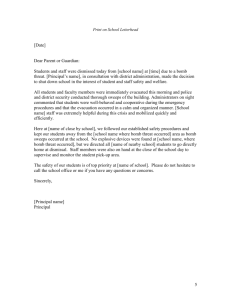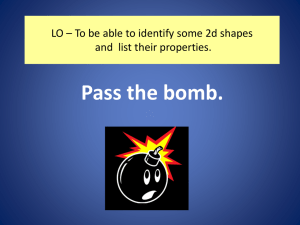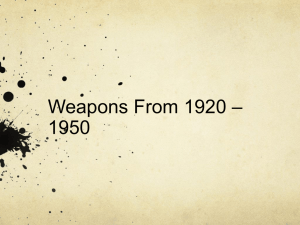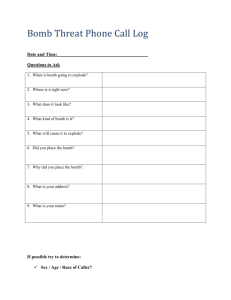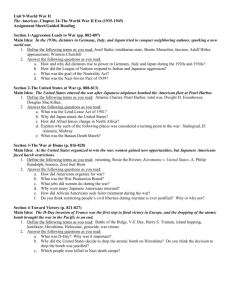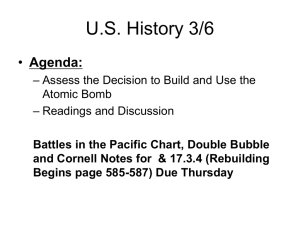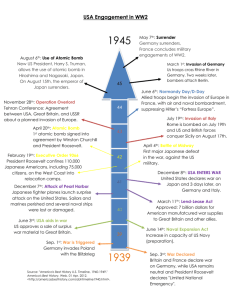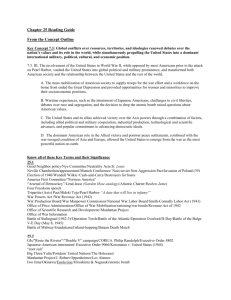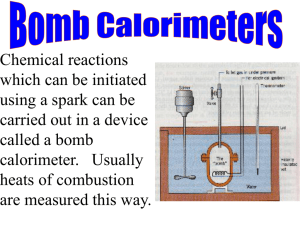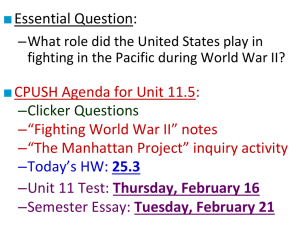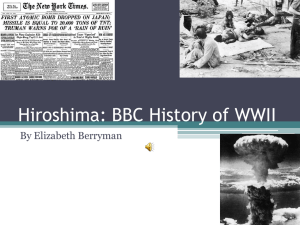The Bomb
advertisement
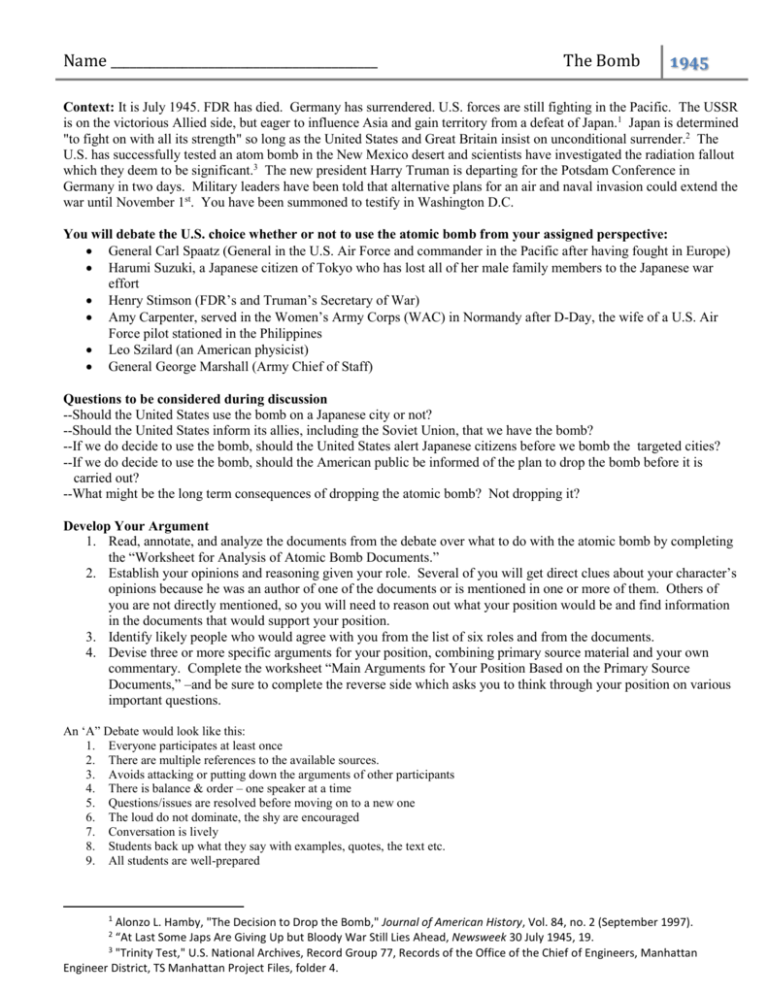
Name _________________________________________ The Bomb 1945 Context: It is July 1945. FDR has died. Germany has surrendered. U.S. forces are still fighting in the Pacific. The USSR is on the victorious Allied side, but eager to influence Asia and gain territory from a defeat of Japan.1 Japan is determined "to fight on with all its strength" so long as the United States and Great Britain insist on unconditional surrender.2 The U.S. has successfully tested an atom bomb in the New Mexico desert and scientists have investigated the radiation fallout which they deem to be significant.3 The new president Harry Truman is departing for the Potsdam Conference in Germany in two days. Military leaders have been told that alternative plans for an air and naval invasion could extend the war until November 1st. You have been summoned to testify in Washington D.C. You will debate the U.S. choice whether or not to use the atomic bomb from your assigned perspective: General Carl Spaatz (General in the U.S. Air Force and commander in the Pacific after having fought in Europe) Harumi Suzuki, a Japanese citizen of Tokyo who has lost all of her male family members to the Japanese war effort Henry Stimson (FDR’s and Truman’s Secretary of War) Amy Carpenter, served in the Women’s Army Corps (WAC) in Normandy after D-Day, the wife of a U.S. Air Force pilot stationed in the Philippines Leo Szilard (an American physicist) General George Marshall (Army Chief of Staff) Questions to be considered during discussion --Should the United States use the bomb on a Japanese city or not? --Should the United States inform its allies, including the Soviet Union, that we have the bomb? --If we do decide to use the bomb, should the United States alert Japanese citizens before we bomb the targeted cities? --If we do decide to use the bomb, should the American public be informed of the plan to drop the bomb before it is carried out? --What might be the long term consequences of dropping the atomic bomb? Not dropping it? Develop Your Argument 1. Read, annotate, and analyze the documents from the debate over what to do with the atomic bomb by completing the “Worksheet for Analysis of Atomic Bomb Documents.” 2. Establish your opinions and reasoning given your role. Several of you will get direct clues about your character’s opinions because he was an author of one of the documents or is mentioned in one or more of them. Others of you are not directly mentioned, so you will need to reason out what your position would be and find information in the documents that would support your position. 3. Identify likely people who would agree with you from the list of six roles and from the documents. 4. Devise three or more specific arguments for your position, combining primary source material and your own commentary. Complete the worksheet “Main Arguments for Your Position Based on the Primary Source Documents,” –and be sure to complete the reverse side which asks you to think through your position on various important questions. An ‘A” Debate would look like this: 1. Everyone participates at least once 2. There are multiple references to the available sources. 3. Avoids attacking or putting down the arguments of other participants 4. There is balance & order – one speaker at a time 5. Questions/issues are resolved before moving on to a new one 6. The loud do not dominate, the shy are encouraged 7. Conversation is lively 8. Students back up what they say with examples, quotes, the text etc. 9. All students are well-prepared 1 Alonzo L. Hamby, "The Decision to Drop the Bomb," Journal of American History, Vol. 84, no. 2 (September 1997). “At Last Some Japs Are Giving Up but Bloody War Still Lies Ahead, Newsweek 30 July 1945, 19. 3 "Trinity Test," U.S. National Archives, Record Group 77, Records of the Office of the Chief of Engineers, Manhattan Engineer District, TS Manhattan Project Files, folder 4. 2
